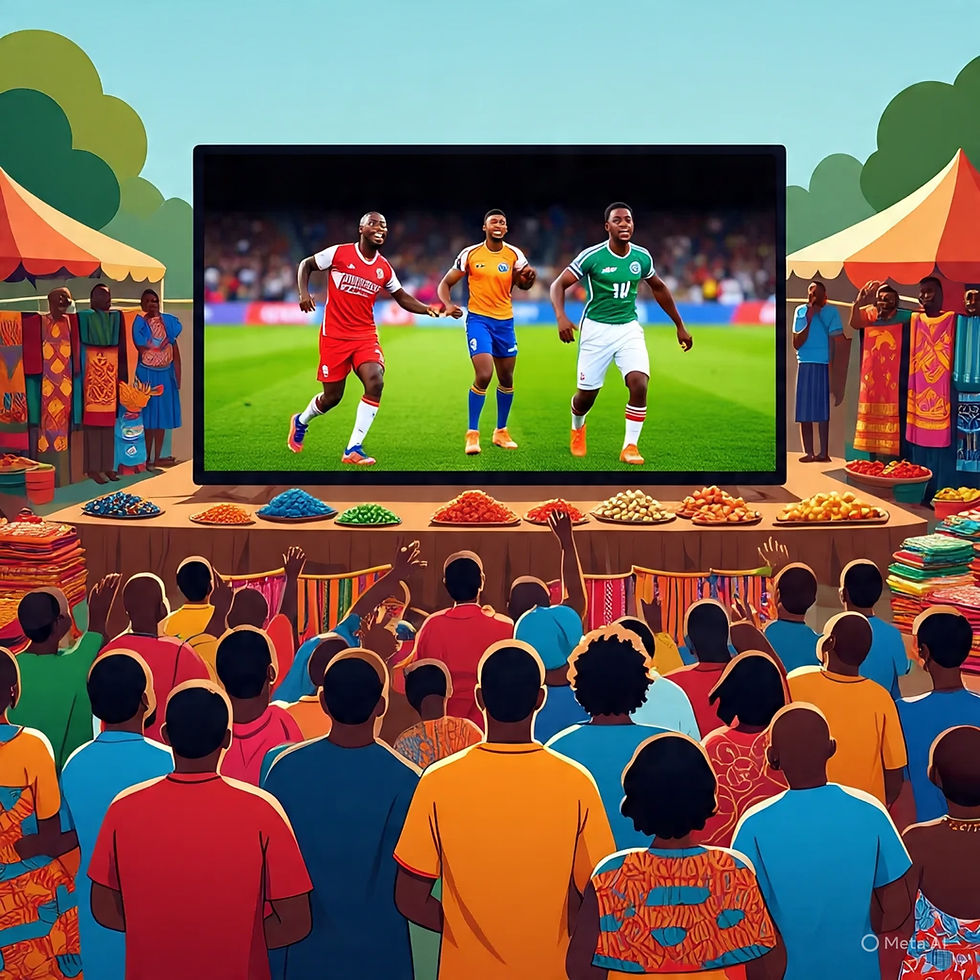Striking a Chord for Change: The Global Role of Musicians' Unions and the African Imperative
- orpmarketing
- May 22, 2025
- 5 min read

Musicians, the lifeblood of our cultural tapestry, often navigate a precarious professional landscape. From unstable incomes to intellectual property theft, the challenges are numerous. This is where musicians' unions step in, acting as a collective voice to advocate for the rights and welfare of their members. But how effective are they, especially in a continent as musically rich and complex as Africa, and what can be done to amplify their impact?
The Universal Mandate: What Musicians' Unions Do
Globally, musicians' unions are fundamentally established to protect and empower their members. Their core duties and responsibilities typically include:
Collective Bargaining and Fair Compensation: Negotiating minimum fees, royalties, and working conditions with employers (e.g., orchestras, recording labels, venues, broadcasters) to ensure musicians are fairly compensated for their work. This is a cornerstone of union power, aiming to reset the balance of power between individual artists and larger industry players.
Protection of Intellectual Property: Lobbying governments and engaging with collecting societies (like PRS for Music, PPL) to ensure musicians receive their due royalties from the use of their recorded and live performances, especially in the digital age. They actively combat piracy and advocate for robust copyright laws.
Legal Aid and Representation: Providing legal advice and representation in disputes over contracts, unfair dismissal, harassment, or copyright infringement.
Health, Safety, and Welfare: Advocating for safe working environments, offering support in times of need (e.g., benevolent funds, medical assistance), and often providing access to insurance (health, instrument, public liability) and pension schemes.
Professional Development and Training: Offering workshops, mentorship programs, and resources to enhance members' skills, adapt to new technologies, and navigate the evolving music industry.
Advocacy and Lobbying: Representing musicians' interests to policymakers at local, national, and international levels, influencing legislation that impacts the music industry, such as copyright reform, cultural funding, and visa regulations for touring artists.
Promoting Inclusivity and Diversity: Actively working to combat discrimination based on gender, race, age, or other characteristics, and fostering an inclusive environment within the industry.
Building Community and Solidarity: Fostering a sense of shared purpose among musicians, encouraging mutual support, and providing a platform for collective action.
The African Reality: Challenges and Perceived Failures
While the mandate is clear, musicians' unions in many African countries face significant hurdles that often lead to a perception of failure or limited impact. These challenges are often systemic and deeply rooted in the continent's socio-economic landscape:
Informal Sector Predominance: A large portion of the African music industry operates in the informal sector, where formal contracts, labor laws, and social security benefits are rarely applied. This makes it challenging for unions to organize, enforce standards, and collect dues.
Weak Legal and Regulatory Frameworks: In many African nations, copyright laws are either weak, poorly enforced, or both. This leaves musicians vulnerable to widespread piracy (both physical and digital) and makes it difficult for unions to secure fair compensation for their members' creative works.
Limited Funding and Resources: Many African unions struggle with inadequate financial resources, hindering their ability to employ staff, run effective campaigns, provide comprehensive services, or even maintain basic administrative functions. Membership dues can be hard to collect consistently.
Lack of Strong Governance and Leadership: Internal disputes, lack of transparency, and insufficient capacity building within union leadership can erode trust among members and diminish the union's effectiveness.
Low Membership Density and Awareness: Many musicians, particularly emerging artists, may not be aware of the benefits of union membership or may view unions as irrelevant. A lack of understanding of their rights also contributes to low participation.
Digital Divide and Evolving Industry: While streaming offers new opportunities, it also presents challenges in terms of fair remuneration. Limited access to reliable internet and digital tools for many African artists exacerbates this, making it harder for them to monetize their work effectively and for unions to track usage.
Cultural Perception of Music as a Hobby: In some contexts, music is still not fully recognized as a professional career with legitimate labor rights, which impacts policy-making and societal support for musicians' welfare.
Fragmented Industry: The African music industry is incredibly diverse and often fragmented, with varying local practices, genres, and business models, making it difficult for a single union to cater effectively to all needs.
Political Interference and Instability: In some regions, political instability or interference can undermine the independence and effectiveness of civil society organizations, including unions.
Changing the Narrative: Strategies for a Stronger Future
Despite these challenges, there's immense potential for African musicians' unions to become powerful forces for positive change. A multi-pronged approach is needed:
Strengthening Legal and Policy Frameworks:
Advocacy for Robust Copyright Laws: Unions must relentlessly lobby governments to enact and enforce stronger copyright legislation, including effective mechanisms for collecting and distributing private copying remuneration. Senegal's adoption of such remuneration is a positive example.
Formalizing the Informal Sector: Working with governments and stakeholders to create pathways for formal recognition of musicians as professionals, ensuring they have access to basic labor rights, social security, and pension schemes.
Promoting Collective Bargaining: Educating musicians and employers on the benefits of collective agreements and working to establish industry-wide standards for fees and working conditions, as seen with the first collective agreement in Senegal's music sector.
Capacity Building and Governance:
Leadership Training: Investing in training programs for union leaders and administrators focused on good governance, financial management, strategic planning, and effective negotiation skills.
Transparency and Accountability: Implementing transparent financial reporting and decision-making processes to build trust and encourage member participation.
Gender Mainstreaming: Actively promoting gender equality within union structures and addressing issues like discrimination and harassment faced by female musicians, as highlighted by the "Dar-es-Salaam Declaration on Gender Equality in the Music Sector."
Member Engagement and Service Delivery:
Demonstrate Tangible Benefits: Clearly articulate and deliver valuable services to members, such as legal aid, contract review, instrument insurance, medical assistance, and access to performance opportunities.
Targeted Outreach and Education: Launching aggressive membership drives that educate artists on their rights, the value of collective action, and how the union can directly improve their livelihoods. Utilizing digital platforms for this outreach is crucial.
Professional Development: Providing accessible training on digital music distribution, online monetization, music business fundamentals, and technical skills to help musicians thrive in the modern landscape. The MUSIGA's capacity-building workshops are a step in this direction.
Strategic Partnerships and Collaboration:
International Alliances: Leveraging relationships with global bodies like the International Federation of Musicians (FIM) and the International Labour Organization (ILO) for technical assistance, funding, and knowledge exchange. The AU-ILO-UNESCO CREATE Programme is a promising initiative.
Local Industry Collaboration: Partnering with music industry associations, collecting societies, cultural institutions, and educational bodies to create a more unified and supportive ecosystem for musicians.
Cross-Continental Learning: Facilitating exchanges between African unions and their successful counterparts in other parts of the world to learn best practices and adapt them to local contexts.
Embracing Technology and Innovation:
Digital Platforms for Administration: Utilizing technology for membership management, communication, and fee collection to improve efficiency and accessibility.
Advocacy for Fair Streaming Royalties: Actively engaging with streaming platforms and advocating for fairer revenue distribution models that benefit artists directly.
Digital Skills Training: Equipping musicians with the skills to leverage digital tools for self-promotion, distribution, and direct fan engagement.
The journey to stronger musicians' unions in Africa is a long one, but the increasing recognition of the music industry's economic potential and the growing activism of artists themselves offer a powerful impetus for change. By prioritizing formalization, robust governance, tangible member services, and strategic partnerships, African musicians' unions can indeed strike a new chord – one of empowerment, fairness, and sustained growth for the continent's vibrant musical talent.




Comments